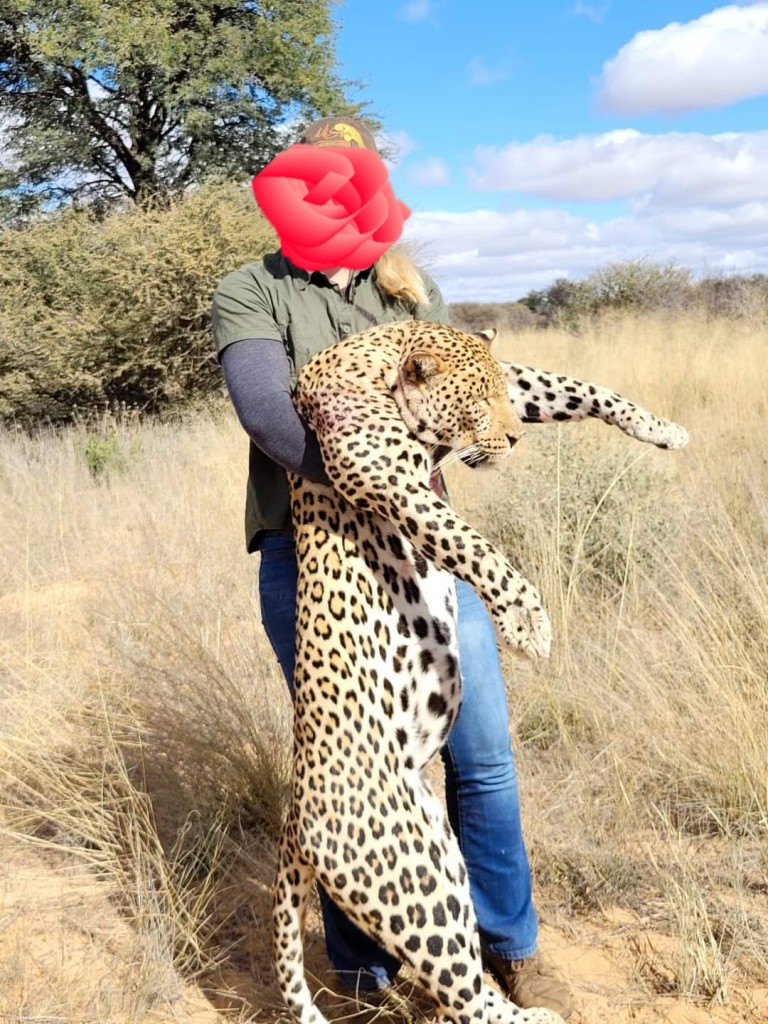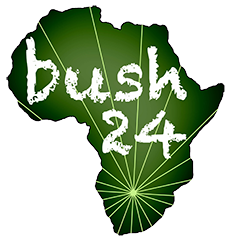Leopard hunting in Botswana – solution or is it just a band-aid on a bigger problem?
Last night I posted a photo of a recent leopard hunt in Botswana. It was met with mixed reactions and lots of comments and direct messages but it raised some excellent points from a number of farmers, hunters and conservationists. I initially felt sorry for the farmers hearing their first-hand experiences and who see this as a solution but then looking deeper, I realized leopard hunting is a short-term solution to bigger problems and at second glance the indications are that the management of the land to keep in for wildlife is failing anyway because quite simply there are not enough leopards to hunt to generate enough finances for it to be a sustainable solution?
I have a lot of respect for the poster/ farmer who wrote the comment and the work he has done for wildlife in Botswana is second to none – I feel sorry for the challenges he has to face and he is not getting the support from the government he needs. His comment allows people who have not been to such areas to understand the challenges farmers face and how hunting provides at least a temporary respite to their problems:
“Leopards are doing well in Botswana. I have been farming with Leopard in South Eastern Botswana for 20 years. I share my 5500ha of cattle ranch with 2 adult males, and 3 females, and subadult cubs. I have camera traps to observe their breeding. They eat at least 100 calves a year, more now that poaching has reduced their natural prey. They are not hunted, they breed here. I can produce 350 calves a year maximum, and they eat my salary. More than that. Poaching is severe and increasing. 20 years ago we had 400 impala ewes, we have 9 now. Calves are what are left to eat. I kraal calves, pay money to feed cows about to calve, and they still kill. Of 5 leopard translocation to Khutse, 1 died in 3 weeks, 1 has survived 6 months, all the rest died, effectively a waste of resources.
Not one NGO will help in reducing my losses. I must convert my ranch to game, but the fence to keep the poachers out and game in costs 7m pula.
Hunters who can come and shoot my rather obese male, living off my calves can give me 40k usd if I asked. That is a years, calf losses. Show me an NGO that gives a shit that I have bothered to conserve my biodiversity……show me one. I can call a hunter tomorrow, and can probably get a lisence to hunt a male.
You know me, what I have done for NGOs in my life here. Sustainable hunting sometimes provides the money, where NGOS DONT GIVE A………”

Image 1: blotched out face of the hunter with their quarry, a 65kg male leopard in his prime
I fully agree that NGO’s often don’t give a damn or don’t give alternatives but nothing here points to a long-term solution the way I see it either. On a farm that size, a male leopard will be traversing across at least 2-3 additional farms to fit in with the minimum territory requirements. If you only have two males then who gets to shoot the leopard. You or the farmer next door? Once that leopard is shot, when will the next one be shot? I can’t see where all the leopards will be coming from to sustain a 1-leopard a year quota per farm to offset losses due to leopard kills or for that matter to generate enough income to protect the farm. Perhaps killing this leopard will reduce future stock losses though? Let us also take this moment to appreciate your solution doesn’t revolve around shooting old male leopards (past their prime) only. When the hunting industry becomes more transparent about the types of animals that need to be shot then we will start to have a working relationship but still we get the continued lie that its only ‘old males that no longer breed’ – both the hunter and the farmer don’t want decrepit old males – the hunter wants a prime animal for their wall and the farmer wants the problem animal shot – irrespective of sex or age!
Another issue is the prey base of impala being poached out. A reduction from 400 to 9 females shows that even though this land is partly managed for the conservation of the area, it is not working because poachers are decimating the prey base anyway and as a result this would be a driving factor for a leopard to change its diet to start feeding on calves (in the absence of impala). If the poaching problem was better managed by authorities then the leopard would probably eat fewer of your livestock and you would still generate enough income? Then the leopards would be able to live in relative harmony. If so then then no leopards would need to be hunted?
In conclusion leopard hunting is a short-term solution to a poaching problem of its prey base. If this problem was tackled (as well as stock theft), then would we even need leopard hunting? Possibly not! But certainly if it were used as an activity to generate funds, then it would make profit for conservation rather than funds to just ensure survival.
With an increasing human population in the area, and other than a few being employed as basic labour on the farm, where would the real empowerment to the communities come in? Fencing the farm wouldn’t empower the locals and at $40k per leopard there isn’t enough money to be able to be generated to fence this farm. I also don’t see a long-term solution to dealing with uplifting communities here and as they grow they will continue to poach and increase stock theft as happens across the continent – it seems that we will get a similar long-term end-scenario as in many other areas of Africa. Cattle will be the only long-term solution on this farm as living in relative coexistence with wildlife is proving to be failing. I really hope not but until the poaching is stopped then what is the solution?
I have one – people who come to Africa need to pay real money to hunt – $40k is nothing. Try $400k and maybe real money can come into conservation to make a difference but for now the funds generated here are not enough to be a real help on such farms. Until this happens hunting is not a conservation solution, it just recuperates losses on the short-term.
*I also have all the direct information about this hunter and location of the hunt however the aim is not to post this to bring any one individual down or rubbish names so I chose to hide the face and information that was shared with me. This would result in personal attacks rather than asking the hard questions around the activity and trying to understand if we have a long-term solution here.





